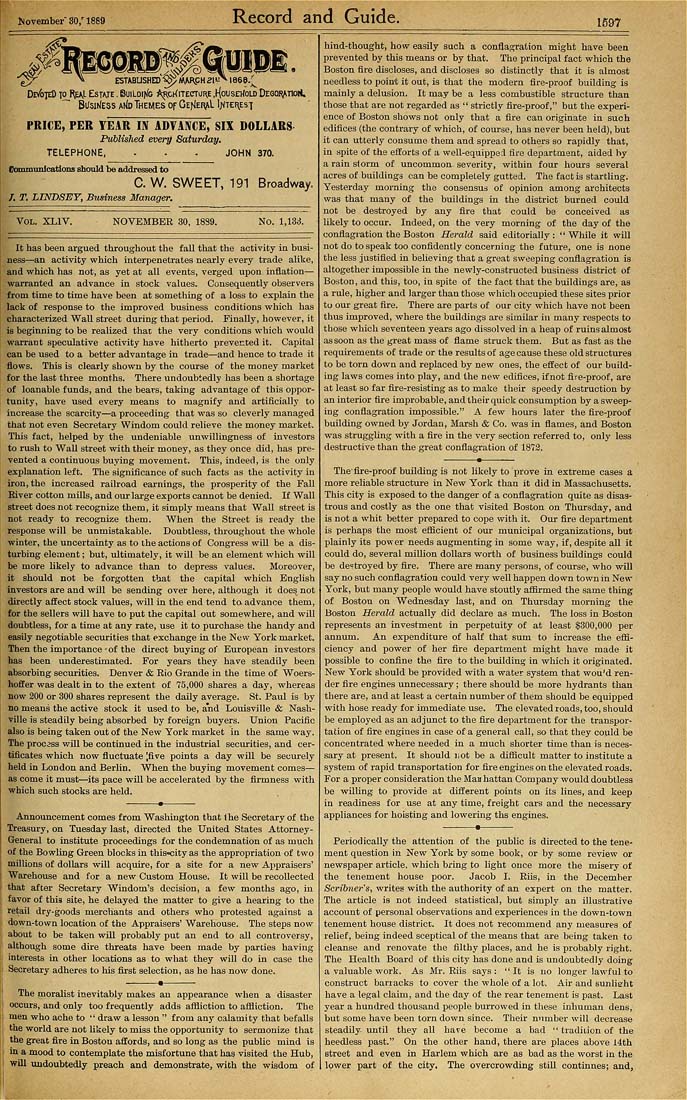Columbia University Libraries Digital Collections: The Real Estate Record
Use your browser's Print function to print these pages.
Real estate record and builders' guide: v. 44, no. 1133: November 30, 1889

Text version:
Please note: this text may be incomplete. For more information about this OCR, view About OCR text.
l